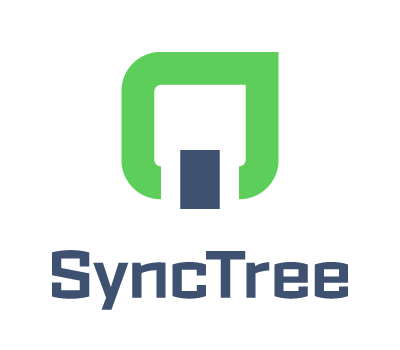Top Api Management Tools Softwares
Api Management software is essential for businesses leveraging APIs to enhance connectivity and functionality. It provides tools to create, secure, and manage APIs, facilitating seamless integration across platforms. These solutions offer a centralized platform to monitor API usage, enforce security protocols, and enhance performance. By managing traffic and ensuring API reliability, teams can opt... Read More
61 companies found
Product Description
Postman is a user-friendly platform that enables teams to develop, test, and manage APIs efficiently. API, standing for Application Programming Interface, is a crucial component in software development, allowing different software applications to communicate with one another. Postman simplifies the interaction with APIs, ensuring smoother collaboration and integration between different systems. W... Read More
Users
- • No Data
Industries
- • No Data
Market Segment
- • No Data
Product Description
SnapLogic is a cloud-based software that helps companies connect different applications and data sources quickly and easily. Think of it like a bridge that links your various business tools so they can work together more efficiently. Whether you're working with on-premise systems or newer cloud-based applications, SnapLogic provides a straightforward way to integrate them all into a single, cohesi... Read More
Users
- • No Data
Industries
- • No Data
Market Segment
- • No Data
Product Description
Zapier is designed to make your day-to-day work easier by connecting the apps you use and automating tasks between them. If you're a small business owner, a team leader, or just someone looking to save time, Zapier can help streamline your workflow without having to code or rely heavily on IT. Think of all the apps you use: email, project management tools, social media, CRM systems, and so forth.... Read More
Users
- • No Data
Industries
- • No Data
Market Segment
- • No Data
Product Description
Workato is a powerful tool designed to help businesses automate their workflows seamlessly. It brings together apps, data, and people in a way that simplifies daily tasks and boosts efficiency. Think of Workato as your all-in-one assistant for connecting different software and automating repetitive, time-consuming processes, so your team can focus on what truly matters. With Workato, you don't ne... Read More
Users
- • No Data
Industries
- • No Data
Market Segment
- • No Data
TIBCO Jaspersoft
Product Description
TIBCO Jaspersoft is a user-friendly reporting and analytics software designed to help businesses of all sizes make sense of their data. If your business relies on data to make informed decisions, this tool can be a significant asset. With TIBCO Jaspersoft, you can create detailed reports, interactive dashboards, and data visualizations without needing advanced technical skills. One of the standou... Read More
Users
- • No Data
Industries
- • No Data
Market Segment
- • No Data
Product Description
Jitterbit is all about simplifying how businesses integrate and manage their data. It's designed for companies that need a straightforward way to bring together different software systems and make everything work seamlessly. Whether you’re trying to connect cloud applications, on-premises solutions, or even legacy systems, Jitterbit focuses on enabling smooth and efficient integration without requ... Read More
Users
- • No Data
Industries
- • No Data
Market Segment
- • No Data
Product Description
SyncTree is a service that makes it easier for your business to manage and organize data interactions. Imagine being able to connect your different software applications so they work better together, saving you time and effort. SyncTree does just that by syncing your apps, data flows, and APIs seamlessly, allowing all your tools to share information without any hassle. One of the standout feature... Read More
Users
- • No Data
Industries
- • No Data
Market Segment
- • No Data
Product Description
Fiorano Software has been around since 1995, dedicated to making business operations simpler and more efficient. We create software solutions that help various types of companies—big or small—connect their different systems and get them to work together smoothly. Our main goal is to save organizations time and effort by providing tools that make data sharing and communication between systems and a... Read More
Users
- • No Data
Industries
- • No Data
Market Segment
- • No Data
Product Description
Tyk is a straightforward, dependable solution for businesses looking to manage their Application Programming Interfaces (APIs) efficiently. APIs are essential for enabling different software systems to communicate with one another, and Tyk makes this management process easier. Companies of all sizes can use Tyk to handle the various aspects of their API needs, whether it’s security, performance, o... Read More
Users
- • No Data
Industries
- • No Data
Market Segment
- • No Data
OpenLegacy
Product Description
OpenLegacy is a platform designed to help businesses modernize their existing software systems without starting from scratch. Many companies rely on legacy systems, which are the old software applications that have been used for years. But as technology moves forward, these systems can become outdated and challenging to maintain. What OpenLegacy does is connect these old systems with new, modern ... Read More
Users
- • No Data
Industries
- • No Data
Market Segment
- • No Data
What is API management software?
Api Management software refers to a set of tools and services that facilitate the creation, distribution, control, and analysis of application programming interfaces (APIs). These platforms provide an organized interface for both developers and enterprises to handle the complete lifecycle of APIs, from inception to deprecation. Through their capabilities, Api Management software enables consistent, secure, and reliable interactions with external and internal APIs.
Control and Monitoring
Api Management software aids in the supervision of API activities. It provides a dashboard to monitor metrics such as usage patterns, response times, and error rates. This insight is crucial for optimizing the performance and reliability of APIs. With these tools, organizations can set quotas and rate limits to prevent abuse or overuse of resources. Through throttling mechanisms, Api Management software minimizes risks such as server overload, ensuring a smooth user experience.
Security Protocols
Security remains a fundamental pillar in the use of Api Management software. These systems incorporate authentication, authorization, and encryption protocols to safeguard APIs against unauthorized access and dubious activities. With integrated security measures such as OAuth, JWT tokens, and API keys, Api Management software ensures that data exchange remains protected. Moreover, it typically includes features to detect anomalies, handle threats, and maintain compliance with relevant regulatory standards.
Developer Portal
A robust Api Management platform includes a developer portal, fostering easier collaboration between the API provider and consumers. This portal serves as a dedicated environment where developers can access documentation, guidelines, sample codes, and SDKs (Software Development Kits). Through this feature, Api management software accelerates the learning curve, enabling developers to integrate APIs into their applications more adeptly.
Lifecycle Management
Handling the API lifecycle is integral to Api Management software. From design and testing to deployment and retirement, these tools streamline every phase in the API development process. Api Management software ensures that updates and changes to the API do not disrupt existing functionalities, through version control features. This is critical for maintaining backward compatibility and ensuring seamless transitions for users.
Analytics and Reporting
Another vital function of Api Management software is its analytics and reporting capability. By aggregating data from API calls, these platforms offer insights into user behavior and API performance. This data-driven approach enables organizations to make informed decisions, drive customer engagement, and improve their API strategies. With real-time analytics, Api Management software can quickly identify issues and optimize API endpoints accordingly.
Ease of Integration
Api Management software promotes ease of integration between disparate systems and platforms. By providing a common framework, it simplifies connecting diverse applications, databases, and services. This interoperability reduces the complexity of APIs acting as bridges between different technological ecosystems. Thus, organizations can innovate faster and expand their digital reach thanks to Api Management software solutions.
How does API management software help businesses?
API management software plays a crucial role in the digital strategy of businesses by overseeing the creation, execution, and supervision of APIs. It serves as an essential tool for managing the API lifecycle, which includes design, publishing, and maintenance. Below are the primary ways in which API management software assists businesses:
Enhancing Security
One of the main functions of API management software is to enhance security. It provides mechanisms for authentication, authorization, and encryption to ensure that only approved users or systems can access the APIs. This is vital for protecting sensitive information and maintaining privacy, especially in industries that handle critical data like finance or healthcare.
Improving Performance
API management software helps boost performance by optimizing API calls and managing traffic. This involves caching responses to reduce network latency, throttling requests to prevent overuse, and load balancing to distribute API requests evenly across servers. These strategies ensure that the APIs can handle a large number of calls without degradation of performance, enhancing the user experience.
Facilitating Scalability
Growing businesses must scale their APIs to meet increased demand. API management software enables this scalability by offering tools that allow APIs to manage additional traffic without impacting performance. This means that businesses can accommodate more users and transactions seamlessly as they expand.
Ensuring Compliance
For businesses operating in regulated industries, API management software aids in ensuring compliance with legal and industry standards. It provides audit trails and logging capabilities, which are essential for tracking API usage and identifying possible security breaches. This ensures that businesses can document compliance with regulations such as GDPR or HIPAA, which is crucial for avoiding fines and legal issues.
Simplifying Integration
API management software streamlines the integration process with various systems and services by providing a unified platform to manage multiple APIs. This simplifies the process of digital transformation by enabling different software applications to communicate and work together efficiently. By doing so, businesses can quickly adapt to new technologies and integrate them into their existing systems.
Enhancing Developer Experience
By providing comprehensive tools and documentation, API management software improves the developer experience. It supplies features like API analytics and monitoring, which provide insights into API usage and performance. These resources help developers understand how APIs are being used, allowing them to make data-driven decisions to improve and optimize API functionality.
Facilitating Monetization
Businesses can leverage API management software to monetize their APIs by setting up billing systems for API usage. This allows companies to create revenue streams from their APIs, turning them into products that can be sold or licensed. By providing analytics and detailed reporting, businesses can determine pricing strategies and understand customer usage patterns to optimize revenue.
Streamlining API Versioning
API management software supports effective version control, allowing businesses to introduce changes without disrupting existing services. This ensures that consumers can continue to use APIs effectively even as updates and improvements are rolled out, reducing downtime and enhancing continuity.
In summary, Api Management software provides extensive benefits that help businesses secure, optimize, and scale their services efficiently while supporting compliance, integration, and monetization efforts.
What are the key features of API management software?
Security
One of the primary features of Api Management software is ensuring secure access to APIs. It provides authentication measures such as OAuth, API keys, and JWT tokens. It also includes features for authorization, ensuring that users have the appropriate permissions to access specific data. Moreover, API management platforms often integrate with existing security infrastructures to enforce policies consistently.
Monitoring and Analytics
Api Management software includes robust monitoring and analytics tools that track usage patterns, performance, and trends. Monitoring offers insights into API health and allows real-time tracking of metrics such as response times, errors, and traffic. Analytics tools further analyze this data to identify areas for improvement and optimization, aiding in strategic planning and decision-making.
Traffic Management
Traffic management capabilities are crucial, controlling the flow of data and maintaining quality of service. Api Management software often provides rate limiting to prevent abuse and throttling to control the number of requests reaching the backend. Load balancing is also included to distribute traffic evenly across servers, ensuring reliable service even during high-demand periods.
API Lifecycle Management
Managing the entire lifecycle of an API, from design to retirement, is another vital feature. This involves creating, testing, deploying, and versioning APIs. Api Management software streamlines these processes, enabling developers to rapidly iterate and update APIs as needed, while maintaining control over each stage of the API lifecycle.
Developer Portal
A developer portal is a standard feature in Api Management software, providing a centralized platform for developers to access APIs. It typically includes documentation, SDKs, and sample code, facilitating a better understanding and easier integration of APIs. Furthermore, these portals often offer a sandbox environment for testing, enabling developers to experiment without impacting production systems.
Policy Enforcement
Api Management software allows the implementation of policies to govern API usage and behavior. Policies can be set for tasks such as data transformation, logging, and caching. They help ensure that APIs adhere to organizational standards and compliance requirements, providing consistent and predictable API behavior.
Access Control
Access control features in Api Management software help manage user permissions and API access. It involves defining roles and permissions to restrict or allow access to specific API endpoints and data. This ensures that only authorized users can interact with certain parts of the API, enhancing security and control over sensitive information.
Scalability
Scalability is essential to handle varying loads and growth. Api Management software typically offers features that allow seamless scaling of APIs. Whether it’s horizontal scaling for distributing load across multiple servers or vertical scaling, API management platforms provide the tools needed to ensure sustained performance and availability as demand fluctuates.
Integration Capabilities
Api Management software often includes features to integrate with various back-end systems, services, and databases. These capabilities facilitate smooth communication between different software components, making it simple to leverage existing systems and data sources. Such integrations can foster a more cohesive and efficient IT ecosystem.
Utilize these features of Api Management software effectively to enhance the performance, security, and usability of APIs, aligning with organizational goals and user expectations.
How can API management software improve security?
Api Management software plays a crucial role in enhancing the security of Application Programming Interfaces (APIs). APIs are vital for businesses as they allow different software systems to communicate and share information. However, without proper security measures, APIs can become vulnerable to attacks. Api Management software addresses these security challenges through several means:
Authentication and Authorization
Api Management software ensures that only authorized users have access to APIs. It employs robust authentication protocols like OAuth, OpenID Connect, and API keys to verify user identity. These protocols help establish trust by ensuring that each request is validated before access is granted. Authorization mechanisms further restrict actions to authorized users, preventing unauthorized operations and attacks.
Encryption and Secure Data Transmission
Data protection is essential in maintaining security within API communication. Api Management software often provides encryption techniques, such as TLS (Transport Layer Security), to secure data in transit. By encrypting data, Api Management software ensures that sensitive information remains confidential and is not intercepted by malicious third parties during transmission.
Rate Limiting and Throttling
Api Management software helps manage the volume of requests made to an API through rate limiting and throttling. By limiting the number of requests from a single user or application over a specific time frame, it prevents abuse and potential denial-of-service (DoS) attacks. Rate limiting and throttling help maintain service stability and availability, mitigating the risk of server overload.
Monitoring and Logging
Continuous monitoring and logging are integral to Api Management software. These processes allow for real-time tracking of API usage, detecting unusual activities, and identifying potential security breaches. By analyzing logs and metrics, businesses can respond promptly to suspicious activities, addressing vulnerabilities before they are exploited.
Secure API Gateway
Api gateways act as an intermediary between clients and backend services, filtering traffic and enforcing security policies. Api Management software uses these gateways to ensure that only traffic from trusted sources reaches the backend systems. They provide a controlled entry point, reducing exposure to potential threats and securing the API ecosystem.
IP Whitelisting and Blacklisting
With IP whitelisting, Api Management software allows only specified IP addresses to access APIs, creating another security layer. Conversely, blacklisting denies access from known malicious IP addresses. These methods control access and safeguard APIs against IP spoofing and unauthorized entry attempts.
Validating and Sanitizing Input
Api Management software helps prevent security vulnerabilities such as SQL injection or cross-site scripting (XSS) by validating and sanitizing input data. By ensuring that only expected and correctly formatted data are processed, it prevents malicious payloads from affecting the system.
Security Policies and Compliance
Api Management software often includes predefined security policies and supports compliance with industry standards and regulations, such as GDPR and HIPAA. These policies help maintain a consistent security posture across the API lifecycle, reducing the risk of non-compliance and associated penalties.
These mechanisms allow Api Management software to provide a layered security approach, ensuring that APIs remain secure from threats while offering seamless access to legitimate users.
What are the benefits of using API management software?
Enhanced Security
Api Management software provides robust security measures to protect APIs from threats such as unauthorized access, hacking, and data leaks. By implementing authentication, authorization, and encryption methods, it ensures that only authorized users have access to the API. This safeguard is vital for maintaining the integrity and confidentiality of sensitive data.
Improved Scalability
Api Management software allows businesses to scale their API usage efficiently. It helps manage increased load by providing features such as caching, load balancing, and rate limiting. This ensures that the API can handle a large number of requests and adapt to varying loads without degradation in performance.
Simplified Integration
With Api Management software, integrating with other systems becomes straightforward. It enables seamless communication by providing standardized protocols and data formats. This simplification reduces the time and effort needed for system integration, ensuring a smoother interoperability between different applications and services.
Better Monitoring and Analytics
Api Management software provides detailed analytics and monitoring capabilities. Organizations can track API performance, usage, and availability in real-time. These insights are crucial for identifying bottlenecks, understanding usage patterns, and optimizing the API to improve efficiency and user satisfaction.
Streamlined Development
Api Management software streamlines the entire API lifecycle, from design and implementation to testing and deployment. It provides tools and frameworks that aid developers in creating and maintaining APIs. These features enhance productivity and reduce development time, allowing developers to focus on more complex tasks.
Enhanced Compliance and Governance
Through features like version control and lifecycle management, Api Management software helps maintain compliance and governance standards. It ensures that APIs adhere to regulatory requirements and company policies, which is essential for organizations in highly regulated industries like healthcare and finance.
API Monetization
For organizations looking to monetize their API offerings, Api Management software provides the necessary infrastructure to manage and track API usage for billing purposes. Through monetization features, businesses can create revenue streams by setting up subscription plans and pay-as-you-go models, thus turning APIs into a profitable asset.
Reliability and Availability
Api Management software enhances the reliability and availability of APIs by offering redundancy, failover capabilities, and SLA management. These features ensure that APIs remain available and perform optimally even during high demand or service disruptions.
Ecosystem Development
Api Management software encourages the growth of an external developer ecosystem by providing easy access to API documentation and developer portals. This fosters innovation and allows third-party developers to create additional value through new applications and integrations.
Cost Efficiency
By optimizing API performance and resource allocation, Api Management software can lead to significant cost savings. Effective resource management reduces IT expenditure while ensuring the API’s responsiveness and availability.
Version Management
Api Management software facilitates version management, enabling organizations to handle various API versions without disruption. This capability ensures backward compatibility and a smooth transition for developers and users when updates or changes occur.
By providing these advantages, Api Management software plays a crucial role in modern businesses, helping them to leverage APIs effectively while ensuring security, scalability, and operational efficiency.
How does API Management Software Enhance Performance?
API Management software plays a crucial role in improving the performance of application programming interfaces (APIs) by optimizing the way they are developed, used, and maintained.
Efficient Traffic Handling
API Management software enables efficient handling of traffic by providing mechanisms like rate limiting and throttling. Rate limiting ensures that the system is not overwhelmed by too many requests, maintaining a stable performance. Throttling allows the system to serve requests at a controllable rate, reducing the chances of overloading and lag.
Load Balancing
Load balancing is another feature provided by API Management software. It distributes incoming traffic across multiple servers, ensuring that no single server is overwhelmed. This distribution enhances system responsiveness and reliability. By evenly spreading the requests, it minimizes the risk of downtime and ensures that performance remains consistent even during peak usages.
Caching
Caching is an effective approach that API Management software uses to enhance performance. By storing copies of frequently requested data locally, the response time improves significantly. Reducing the need to repeatedly access a central server for the same data, caching decreases latency, leading to faster API responses.
API Monitoring and Analytics
API Management software offers comprehensive monitoring and analytics tools. These tools collect data on API usage, response times, and error rates. By analyzing this data, developers can identify bottlenecks and inefficient endpoints. Optimizing these areas based on insights increases overall API performance. Continuous monitoring also ensures issues are detected and resolved promptly.
Security and Access Management
Security measures like authentication and authorization integrated within API Management software not only protect data but also streamline processes. Having seamless security protocols reduces delays in access and prevents illegal activities that could degrade performance. Proactive security ensures that resources are accessed effectively and only by verified users.
Version Control and Compatibility
API Management software facilitates version control which allows multiple versions of an API to coexist. This ensures that any updates or changes do not disrupt current user operations. Providing backward compatibility encourages smoother transitions and greater uptime. Lowering the risk of downtime due to updates enhances performance.
Gateway Optimization
API gateways in API Management software serve as an entry point for clients to access back-end services. They perform functions such as request routing, transformation, and protocol mediation. An optimized gateway can reduce the overhead on backend services by offloading certain tasks, ensuring that the APIs run efficiently and effectively.
Intelligent Redundancy
API Management software incorporates redundancy to prevent performance degradation. By having failover processes in place, it automatically switches to backup systems in the event of a failure. This proactive measure ensures that services remain available and performant even in unexpected circumstances.
By implementing these methods, API Management software not only maintains but significantly enhances the performance of APIs. Through effective traffic management, load balancing, efficient caching, and continuous monitoring, it ensures that APIs operate optimally. Security, version control, and gateway optimization further support the sustained performance necessary for modern applications.
What is the role of API management software in API analytics?
Understanding the Basics
Api Management software plays a crucial role in API analytics, providing essential tools for tracking, analyzing, and managing the data that flows through APIs. With APIs serving as the backbone for modern applications, understanding how they perform and interact with other services is vital. These management solutions empower organizations with insights gathered through comprehensive analytics, fostering better decision-making and optimization of API usage.
Monitoring and Tracking
A core function of Api Management software in API analytics is to monitor API performance in real-time. It involves tracking various metrics like response time, latency, error rates, and traffic patterns. By observing these metrics, organizations can promptly detect issues, improve reliability, and ensure a seamless experience for end-users. Constant monitoring helps maintain high performance and availability, which are critical for business operations.
Data Analysis
Api Management software provides the tools needed for in-depth data analysis. It aggregates data from numerous sources to offer a clear picture of API behavior and its impact on business processes. With robust analytics features, organizations can segment data, compare it across different timeframes, and identify trends or anomalies. These insights reveal usage patterns, helping companies understand which APIs are most valuable and where improvements are needed.
Enhancing Security
API analytics within Api Management software also contributes to enhancing security. By analyzing access patterns and identifying deviations from normal activity, organizations can detect potential security threats or unauthorized access. This proactive approach allows businesses to mitigate risks swiftly, protecting their assets and ensuring compliance with security standards. Security analytics form an integral part of maintaining a robust API ecosystem.
Improving Developer Experience
Api Management software aids in refining the developer experience by offering insights gleaned from API analytics. Developers can use these insights to optimize API design, improve documentation, or streamline onboarding processes. Understanding how APIs are used and where developers face challenges helps create more intuitive and efficient API solutions, encouraging adoption and fostering innovation.
Decision Making and Strategy
API analytics provides essential data that impacts strategic decisions. Api Management software allows businesses to visualize data, enabling stakeholders to make informed decisions regarding API strategies. It helps in aligning APIs with business goals, optimizing investments, and identifying new opportunities for growth or improvement. Businesses can leverage these insights to enhance customer satisfaction and drive innovation.
Enhancing Scalability and Efficiency
Through detailed analytics, Api Management software assists in planning for scalability. Understanding usage trends and forecasting demand helps allocate resources efficiently, ensuring APIs can scale to meet future needs. This planning prevents downtime and resource wastage, contributing to cost-effective operations. Efficient management of APIs is critical as organizations grow and expand their digital capabilities.
Api Management software serves as a foundation for API analytics, enabling businesses to monitor, analyze, and optimize their API ecosystems effectively. By providing comprehensive insights into performance, security, and usage patterns, these solutions allow organizations to maximize the value derived from their APIs, assisting in achieving business objectives and maintaining a competitive edge in the digital landscape.









